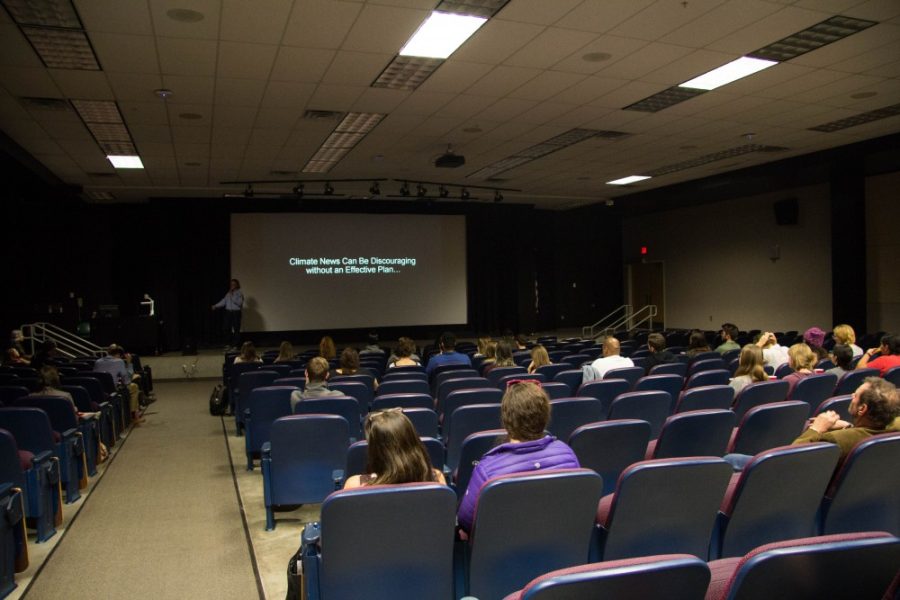The climate-change awareness movie “The Age of Consequences” was screened at the Gallagher Theater on Jan. 19. The free screening was brought to the University of Arizona by the Citizens’ Climate Lobby Tucson Chapter, the UA Students for Sustainability, the Associated Students of the University of Arizona, the Vets Center and the Office of Sustainability.
“The Age of Consequences” explores climate change’s effect on national security and global stability. The 2016 film suggests that climate change acts as a catalyst for conflict and human displacement in unstable regions of the world.
The film gives specific examples of droughts and food scarcity leading to civil wars across Africa and the Middle East.
RELATED: ‘Sustainable Built Environments’ lecture series leads off with UA’s Champion
Although most of the film involved a bleak look on climate change’s impact, it also showed that the U.S. military is becoming a leader in renewable energy throughout the United States.
The screening included a post-film discussion where UA students were able to voice their concerns about climate change with Paul Blowers, university distinguished professor in chemical and environmental engineering, and Ben Champion, director of the Office of Sustainability.
The post-film discussion opened up with Champion asking the audience, “Even if we completely transform our energy economy within the next decade, we’ll still feel the effects of climate change … What are we vulnerable to here in Tucson?”
The answer from the crowd was a mix of “water” and “heat.” Champion agreed and explained that if Tucson became hotter due to climate change, then a facility like the UA would need more water to cool its buildings, and that water would be more scarce due to climate change.
“That’s a huge concern for people who run huge facilities like a university,” Champion said. “We may have to completely retro-fit all of our facilities, which can be very expensive.”
The discussion moved to how energy usage is made on outdated information.
“We seem married to decisions that society has made for reasons that were totally unrelated to anything that we’re dealing with right now,” Blowers said. “That’s where students are going to have a big impact. Instead of thinking that you’re stuck with what we did historically, you can break off and reinvent things.”
RELATED: Deans named co-chairs of Robbins Strategic Planning Initiative
Champion echoed Blower’s sentiments, doubling down on the influence of young people.
“[Students] have a lot of power in a university that has commodified education,” Champion said when asked about what students could do to make the UA more sustainable.
Champion suggested students participate in UA focus groups and bring up sustainability to help shape the UA’s new strategic plan.
Follow the Daily Wildcat on Twitter









